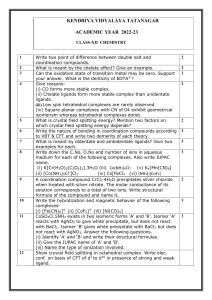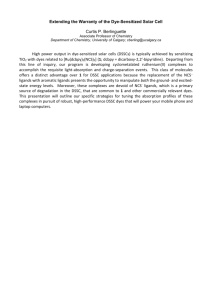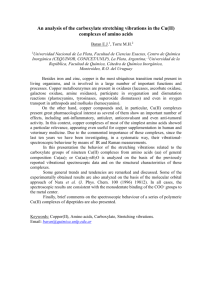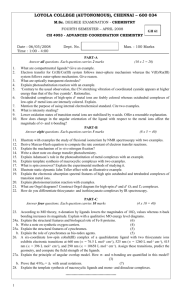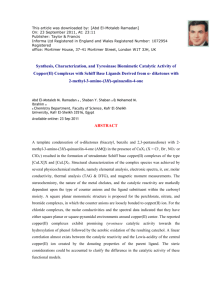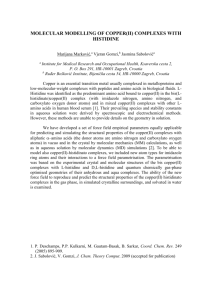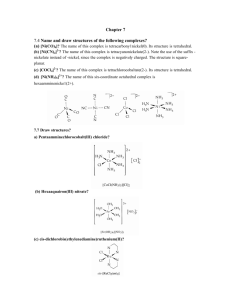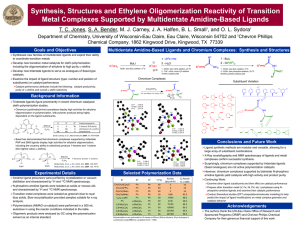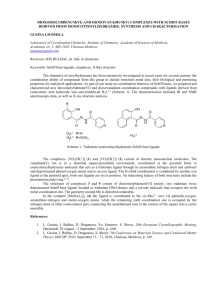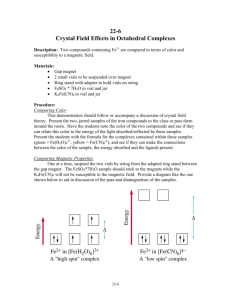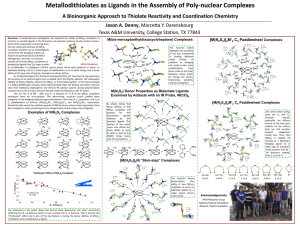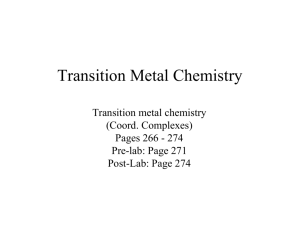MSc Justyna Nagaj
advertisement
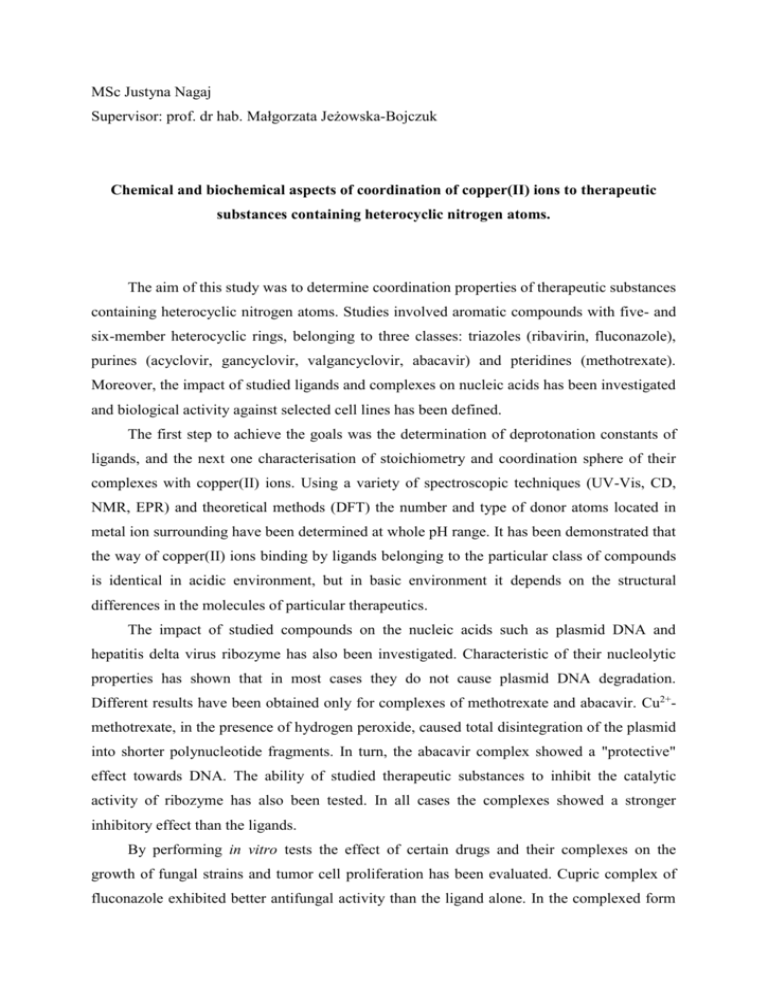
MSc Justyna Nagaj Supervisor: prof. dr hab. Małgorzata Jeżowska-Bojczuk Chemical and biochemical aspects of coordination of copper(II) ions to therapeutic substances containing heterocyclic nitrogen atoms. The aim of this study was to determine coordination properties of therapeutic substances containing heterocyclic nitrogen atoms. Studies involved aromatic compounds with five- and six-member heterocyclic rings, belonging to three classes: triazoles (ribavirin, fluconazole), purines (acyclovir, gancyclovir, valgancyclovir, abacavir) and pteridines (methotrexate). Moreover, the impact of studied ligands and complexes on nucleic acids has been investigated and biological activity against selected cell lines has been defined. The first step to achieve the goals was the determination of deprotonation constants of ligands, and the next one characterisation of stoichiometry and coordination sphere of their complexes with copper(II) ions. Using a variety of spectroscopic techniques (UV-Vis, CD, NMR, EPR) and theoretical methods (DFT) the number and type of donor atoms located in metal ion surrounding have been determined at whole pH range. It has been demonstrated that the way of copper(II) ions binding by ligands belonging to the particular class of compounds is identical in acidic environment, but in basic environment it depends on the structural differences in the molecules of particular therapeutics. The impact of studied compounds on the nucleic acids such as plasmid DNA and hepatitis delta virus ribozyme has also been investigated. Characteristic of their nucleolytic properties has shown that in most cases they do not cause plasmid DNA degradation. Different results have been obtained only for complexes of methotrexate and abacavir. Cu2+methotrexate, in the presence of hydrogen peroxide, caused total disintegration of the plasmid into shorter polynucleotide fragments. In turn, the abacavir complex showed a "protective" effect towards DNA. The ability of studied therapeutic substances to inhibit the catalytic activity of ribozyme has also been tested. In all cases the complexes showed a stronger inhibitory effect than the ligands. By performing in vitro tests the effect of certain drugs and their complexes on the growth of fungal strains and tumor cell proliferation has been evaluated. Cupric complex of fluconazole exhibited better antifungal activity than the ligand alone. In the complexed form fluconazole reduced the growth of microorganisms by 10-40% stronger than uncomplexed drug. Whereas cytotoxicity studies have shown that the complex of methotrexate exhibits significant toxicity on the human lung adenocarcinoma and colon mouse carcinoma cells.
